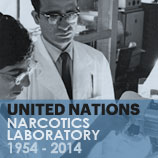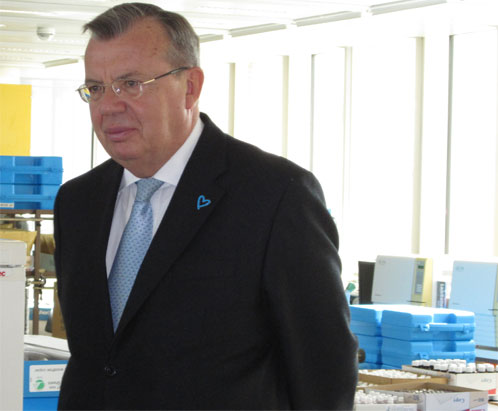 15 December 2014 - Sixty years ago, the United Nations Narcotics Laboratory - today known as the UNODC Laboratory and Scientific Section - started its operations. The facility, which was originally established to carry out scientific research on opium, cannabis and other substances under international control, now also provides forensic science tools and services to Member States for their efforts against drugs and crime.
15 December 2014 - Sixty years ago, the United Nations Narcotics Laboratory - today known as the UNODC Laboratory and Scientific Section - started its operations. The facility, which was originally established to carry out scientific research on opium, cannabis and other substances under international control, now also provides forensic science tools and services to Member States for their efforts against drugs and crime.
Guilt or innocence can be proven through evidence discovered and examined by forensic experts, which is needed by police and prosecutors in order to bring criminals to justice. "In too many parts of the world, police lack the capacity to detect drugs, and to analyse suspicious substances. Yet the tools required are very basic: even just a small kit can enable on-the-spot testing," said UNODC Executive Director Yury Fedotov.

From its Lab, UNODC provides guidance and support to countries to ensure international standards are applied, to strengthen their national forensic capabilities, and to increase the use of forensic science services and data for evidence-based operations. This is done through best practice manuals and methods for testing and laboratory analysis, through reference materials and standardized training programmes, and through research and quality assurance support.
Currently, 180 laboratories in 60 countries benefit from the UNODC quality assurance programme provided by the Lab, and can monitor their performance towards internationally accepted standards. In the past five years more than 10,000 drug reference standards were made available to national drug testing laboratories, 3,000 drug and precursors field testing kits were provided in support of law enforcement operations, and 6,000 copies of best practice manuals and guidelines were distributed to 400 institutions worldwide.